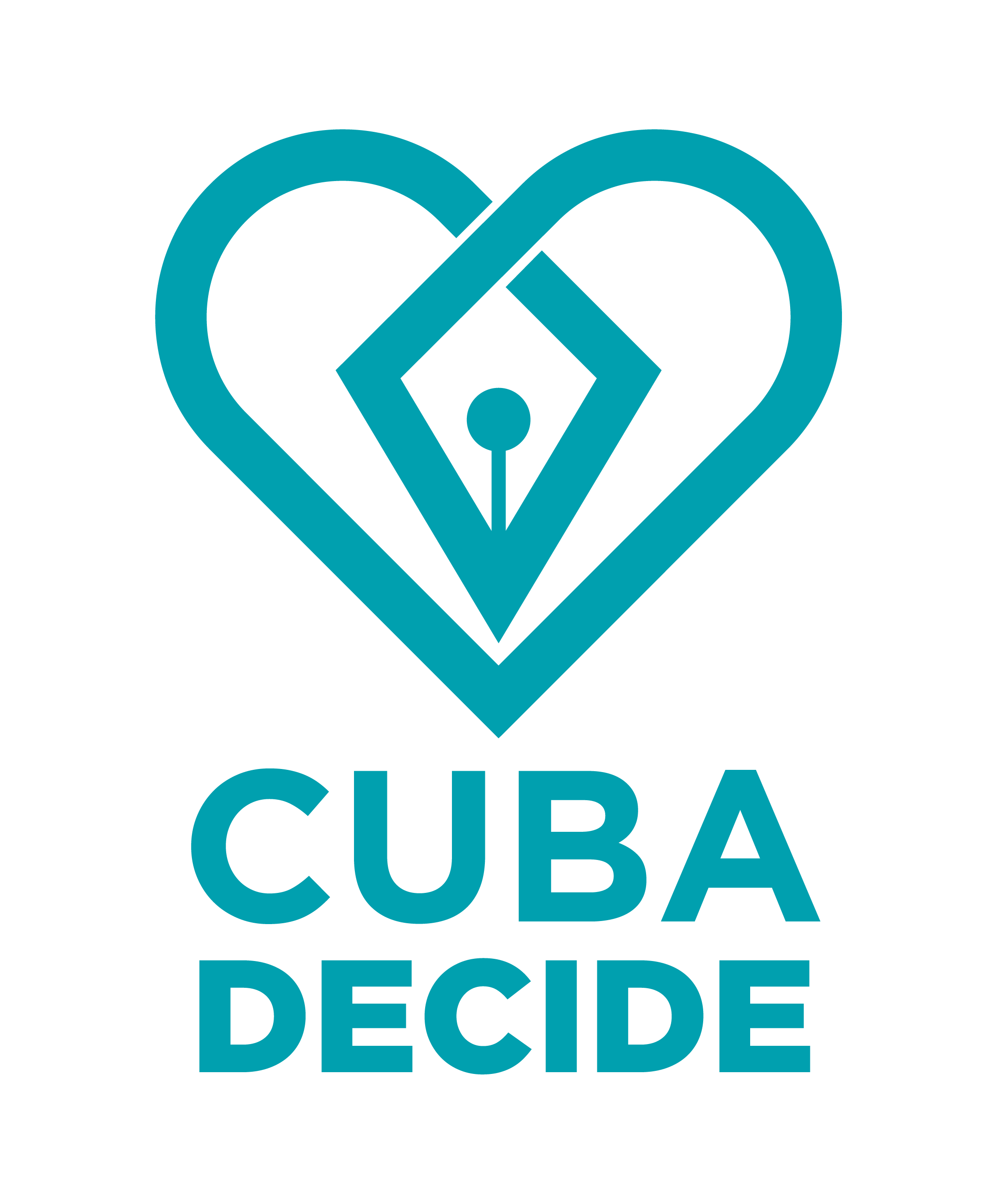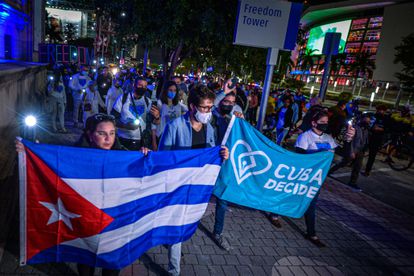This website uses cookies so that we can provide you with the best user experience possible. Cookie information is stored in your browser and performs functions such as recognising you when you return to our website and helping our team to understand which sections of the website you find most interesting and useful.
THE CUBA DECIDE PLEBISCITE: TO BE, OR NOT TO BE FREE!

Apoya Cuba Decide porque para salir de esta crisis hay que salir de la dictadura.
29 September, 2022
PLEBISCITO CUBA DECIDE: ¡SER O NO SER LIBRE!
20 October, 2022After decades of freedom-less lives under totalitarian rule, the Cuba Decide Plebiscite is a citizen-led initiative fundamentally asking the Cuban people a rational judgment question: Do you want to be free? “Yes” or “No.” Who can possibly object to such a question? The answer should enlighten us all.
By José Azel l
We take it for granted that all peoples aspire to be free, but the idea of individual freedoms is not universally accepted.
Believers of totalitarian and authoritarian regimes across the world hold that a dictatorial approach to governing is moral, just, and necessary. Some offer that a developing nation needs a strong-man rule to effectively promote economic growth without the aggravations of democracy. Others feel authoritarian rule is necessary to assure law and order. Others embrace monarchies, realms, or other hereditary forms of governments to protect the traditions and customs of their people. Others believe that their church and government are one and the same and that their religious beliefs are above a selfish desire for freedom. Marxists sacrifice individual freedoms on the altar of collectivism.
If that is their well-informed choice, these true believers in single-party permanent rule, should be free to be unfree – preferably on another planet. But, this begs the question of how should a society decide on its form of government. The dictatorial answer is to hold on to power indefinitely as we see in totalitarian states like North Korea and Cuba. The democratic answer, of course, is by free, fair, competitive, multiparty, and frequent elections.
This is why I find the Cuba Decide Plebiscite project, spearheaded by Rosa María Payá Acevedo such a refreshing proposition after nearly six decades of Castro rule in Cuba. Rosa María is the youthful, highly articulate, daughter of slain Cuban democracy activist Oswaldo Payá, recipient of the European Parliament’s prestigious Sakharov Prize and five-time nominee for the Nobel Peace Prize. Rosa María, as president of the Latin American Youth Network for Democracy, is continuing her father’s work to foster democracy on that tragic Island.
The Cuba Decide Plebiscite initiative proposes to answer by a direct “Yes” or “No” vote of the Cuban people one basic, but transcendental question:
Do you agree with the convening of free, fair, and pluralistic elections, by exercising freedom of speech; and organizing freely in political parties and social organizations with full plurality?
It would be naive to expect that the Castro regime would agree to hold such a binding plebiscite. Yet, at a minimum, promoting the plebiscite provides a strategic tool to encourage a highly focused political debate and public dialogue both in Cuba and in international forums. It puts the spotlight on the fact that it is the people’s prerogative, and no one else’s, to decide their form of government.
Few would disagree with the plebiscites’ central postulate that Cubans must be free to decide their future. Even supporters of the Castro regime would find it ideologically difficult to object to presenting this simple question to the Cuban people. The only intellectually honest way to protest such a people empowering plebiscite is to argue that people should not have a say in their future and to argue that dictatorships are the preferable form of government. Not many international leaders are willing to publicly state that preference.
The Cuba Decide Plebiscite is not a political platform, but rather a tool to initiate change if the Cuban people decide that change is warranted by a “Yes” vote that offers the possibility of alternatives. A “No” vote would legitimize single-party permanent rule. In some ways, the plebiscite idea offers a Cuban leadership of Castro’s successors an elegant and accepted way to change course or, alternatively, to seek to legitimize their single-party rule. As events unfold in post-Castro Cuba, the youth-led Cuba Decide Plebiscite initiative may become a key component of a legitimate transition.
Freedom has consequences, not all of them useful, but it is immoral and unjust to deprive people of their freedom as dictators do. Our rational judgment is our basic means of living. If we cannot act in accordance with our free judgment, we cannot live fully as human beings. And, we need freedom to act on our judgments. After decades of freedom-less lives under totalitarian rule, the Cuba Decide Plebiscite is a citizen-led initiative fundamentally asking the Cuban people a rational judgment question: Do you want to be free? “Yes” or “No.” Who can possibly object to such a question? The answer should enlighten us all.
José Azel arrived in the U.S. in 1961 from communist Cuba as a 13-year-old political exile with Operation Pedro Pan, the largest unaccompanied child refugee movement in the history of the Western Hemisphere. Dr. Azel earned a Masters Degree in Business Administration and a Ph.D. in International Affairs from the University of Miami, and is author of Mañana in Cuba: The Legacy of Castroism and Transitional Challenges for Cuba, and Reflections on Freedom. He is also a contributor to SFPPR News & Analysis of the online-conservative-journalism center at the Washington-based Selous Foundation for Public Policy Research.
From: El Nuevo Herald


